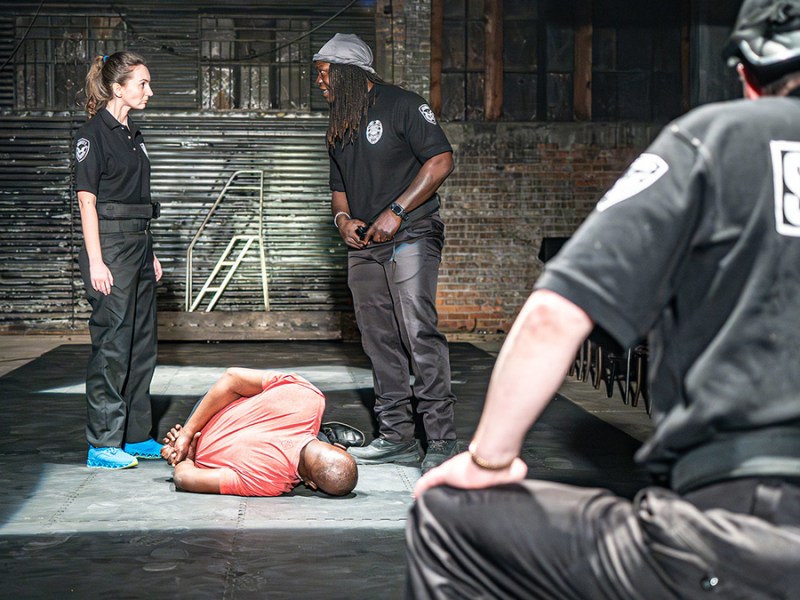Based on the book of the same title by Northwestern professor E. Patrick Johnson, Fleetwood-Jourdain’s Honeypot: Black Southern Women Who Love Women (copresented by Northwestern University’s Wirtz Center for the Performing Arts, adapted by Northwestern professor emeritus D. Soyini Madison, and directed by Madison and Fleetwood-Jourdain artistic director Tim Rhoze) is a combination of ritual, choreopoem, and storytelling that celebrates Black women’s love for themselves and each other, often against the oppressive forces of white supremacy, misogyny, and homophobia.
Honeypot: Black Southern Women Who Love Women
Through 6/1: Sat 7 PM, Sun 3 PM; Fleetwood-Jourdain Theatre at Noyes Cultural Arts Center, 927 Noyes, Evanston, 847-866-5914, fjtheatre.com, $32 ($10 students)
The framing device is that EPJ (a stand-in for Johnson, played by Jelani Julyus) has been kidnapped by Miss B (the effervescent Tuesdai B. Perry) and taken to a hive of bees called “Hymen.” The ethnographic work of Johnson (who also wrote Sweet Tea: Black Gay Men of the South—an Oral History) comes to life through a series of vibrant scenes set in various locales, including a blues club, a riverbank, and a garden.
The stories these women tell are sometimes ribald, sometimes heartbreaking, but always steeped in a spirit of community and empathy. (Not unlike Shay Youngblood’s Shakin’ the Mess Outta Misery, also reviewed this week.) Early on, it’s clear that they aren’t letting their identities (including their spiritual beliefs) be dictated by anyone else. “I let nothing separate me from the love of God,” one woman declares, and the connection to the spiritual and each other provides the emotional heft to this engaging work. In addition to Perry and Julyus, six actors play all the other roles, moving with and between scenes with the aid of Marsae Mitchell’s propulsive choreography. Sometimes the stories begin to feel a bit repetitive, but then we’re reminded that coming out, falling in love, dealing with histories of abuse, and all the other myriad details combine to form the tapestry of love and resilience for these women. That deserves our attention now more than ever.






